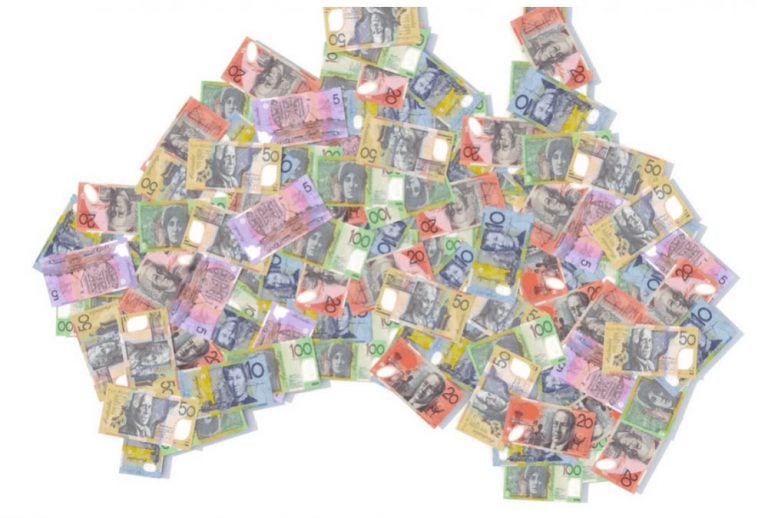As someone who has experienced both funding success and heartbreaking rejection, I feel like I have a balanced perspective on how to snare that dollar-pie in the sky. That said, if I knew all the secrets there wouldn’t be rejection at all, and I’d be travelling the world on a wave of crowdfunding, international grants and residencies … which quite a few people have managed to turn into a bona fide way of life. Lucky bastards.
So, short of pursuing a career inside the Australia Council over many years simply to rig the system from the inside, we thought we’d chat to those in the know – both industry experts, and artists themselves – about what we need to know before wallpapering the walls with money. There’s no silver bullet to success, but there are certainly things to avoid.
“It depends on the grant but generally I’d say you just need to prove that there is an audience for what you’re doing,” says Emily Collins at MusicNSW. “If the venue desperately wants you to play a gig there, then get them to write a letter. If Madonna desperately wants you as her support act, get her to whip up a letter of support. Basically, you want other people to say how great you are and why the funding body definitely should help you share your gifts with the world. Letters of support from mums don’t count. Unless your mum is Madonna.”
More crucially, Collins adds, “Do not submit a budget that doesn’t balance. We don’t want to see you $3k in debt, nor make a $3k profit from a project in which you’re asking for a $2500 grant. Don’t submit an application for recording your album, when it’s a touring grant (you’d be surprised…). Don’t forget to read the criteria, and don’t forget to ask for help if you’re stuck. Most funding bodies will help clarify if you’re not sure. Better to ask than do it wrong.”
Many funding bodies out there – from State and Federal levels, to local council small grants – are happy to provide feedback throughout the entire life of your grant application … including the reasons why your fledgling submission just got turned down. From personal experience and in talking with a swathe of other submitters, the primary reasons for rejection appear to boil down to three main issues. First, your budget doesn’t add up, or is clouded by vague descriptions. Secondly, competition for your grant maybe particularly fierce in your funding round. And thirdly, the assessors may simply not think you’re quite ready to make the most out of this kind of opportunity.
Hugh Nicols, City of Sydney’s Strategy Advisor for Live Music and Entertainment, has a particularly insightful perspective on how to develop your act to a point it might be grant-ready. Essentially, make use of every opportunity to hone your craft that you can find; it’s not just about the language you use, or making sure you address each aspect of the criteria in bafflingly verbose fashion. Show that you’re out there on the ground gigging, practising, burning down hospitals, all the things emerging musicians do these days.
“Focus on your craft and write good songs,” Nichols recommends. “There’s a lot of other work involved obviously, but at the end of the day the song is what matters. If you’re a student, get involved in our Student Rehearsal Program that provides free rehearsal space in our community venues and rehearse, rehearse, rehearse. We’re working with a developer called Greenland on a brand new multi-room rehearsal facility in the centre of the Sydney CBD, that is due to open sometime in 2019. We’re working on a range of projects for 2017 including new funding programs for music venues … as well as making it easier to start up small, grassroots venues.”
Suffice to say, do your research on what kind of grant is appropriate for you, read the damned criteria, and then prove you have what it takes to stretch any level of funding into something that can make your art more sustainable. Talk the talk, and walk the walk. Simple, right?
Well, yes and no. The current landscape of Australian music, the amount of funding these organisations themselves receive, what other submissions you’re up against; all of this is external to the strengths of your own application. It takes determination, and usually several different attempts. But securing a grant is no impossible dream. Just don’t, you know, leave it until the night before it’s due.
“You’ve got to make sure what you’re trying to fund fits the criteria or else it’s a waste of your time,” Collins insists. “My advice would be find a great writer and ask for their help. Or call MusicNSW – we’ll advice you on grants – both ours and other peoples. We want more musicians to get funding, so we’ll help where we can. MusicNSW is going to run a grant writing masterclass later this year. If you’re interested, email [email protected] and let us know you’d be keen to attend and we’ll make sure you get notified about it.”
So what are you waiting for?
We’re working with City of Sydney to tell stories of Sydney’s live music scene. For more information on the work City of Sydney does, head to www.cityofsydney.nsw.gov.au


































